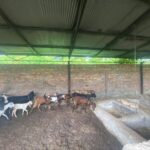The Ministry of Federal Education and Professional Training (MoFEPT) has launched an ambitious roadmap aiming to significantly strengthen Pakistan’s Non-Formal Education (NFE) sector. This initiative seeks to provide inclusive, resource-rich, and accountable educational opportunities for millions of children, youth, and adults excluded from formal schooling due to poverty, remote location, social barriers, or age.
Recognizing that Non-Formal Education offers a vital second chance for learners to acquire basic literacy, numeracy, and essential educational competencies, MoFEPT’s newly unveiled plan will turn NFE services into an integral and effectively governed part of Pakistan’s broader educational landscape. Key targets of this initiative include reducing the number of Out-of-School Children (OOSC), enhancing learning quality, and promoting smooth transitions from non-formal into formal schooling, particularly in underserved communities.
Central to this roadmap is a dedicated Federal NFE Policy, designed to provide clear strategic direction and robust governance for the sector. This will set the stage for improved efficiency and accountability, laying a solid foundation for sustainable growth in non-formal education.
A structured framework for teacher recruitment, management, and professional capacity-building forms another important pillar of this initiative. To raise standards, MoFEPT is initiating a comprehensive Teacher Needs Assessment (TNA) to understand specific training requirements and subsequently roll out targeted federal teacher training programs. Specialized training modules will include areas such as multi-grade teaching, accelerated learning practices, and inclusive instruction methodologies.
In addition, the ministry is distributing specially designed “NFE Teacher Aid Kits,” equipping educators across non-formal centres with valuable teaching resources. This practical step aims at creating higher-quality learning environments, significantly enhancing educational outcomes for learners.
A crucial policy decision within the roadmap is the reinstatement of the 5th Grade Examination. This action seeks to streamline the integration of NFE learners into formal education by providing standardized measures of students’ academic readiness for mainstream schooling.
In collaboration with the Japanese International Cooperation Agency (JICA), MoFEPT plans to implement standardized in-class student assessment procedures. These ongoing assessments will provide essential feedback on learner progress, helping to refine instructional approaches and ensure continuous enhancement of educational delivery.
The roadmap also calls for establishing a robust Monitoring and Evaluation (M&E) system directly integrated with the existing NFE Management Information System (NFEMIS). This system will enable real-time data collection, provide powerful insights for accountability and transparency, and foster continuous improvement throughout the NFE sector.
To further community involvement and support, MoFEPT is launching the “Adopt a NFE Centre” program. Under this scheme, local communities, private sector enterprises, and development partners will actively support NFE centres by donating resources, supplies, and operational assistance, promoting sustainability in these education centres.
Inclusivity remains at the heart of MoFEPT’s roadmap, reflected by the establishment of Special Learning Centres specifically designed to serve marginalized communities, including the Khwaja Sira population. By establishing these safe and welcoming environments, the ministry aims to ensure education access extends to all vulnerable and traditionally neglected groups.
In implementing this roadmap, MoFEPT closely collaborates with key local and international education stakeholders and partners, including JICA, Pakistan Institute of Education (PIE), National Education Foundation (NEF), National Commission for Human Development (NCHD), Basic Education Community Schools (BECS), Taleemabad, Allama Iqbal Open University (AIOU), and the Federal Directorate of Education (FDE), among others. These joint efforts underline the ministry’s commitment to leaving no child behind and making education a pathway toward brighter futures for all learners.











